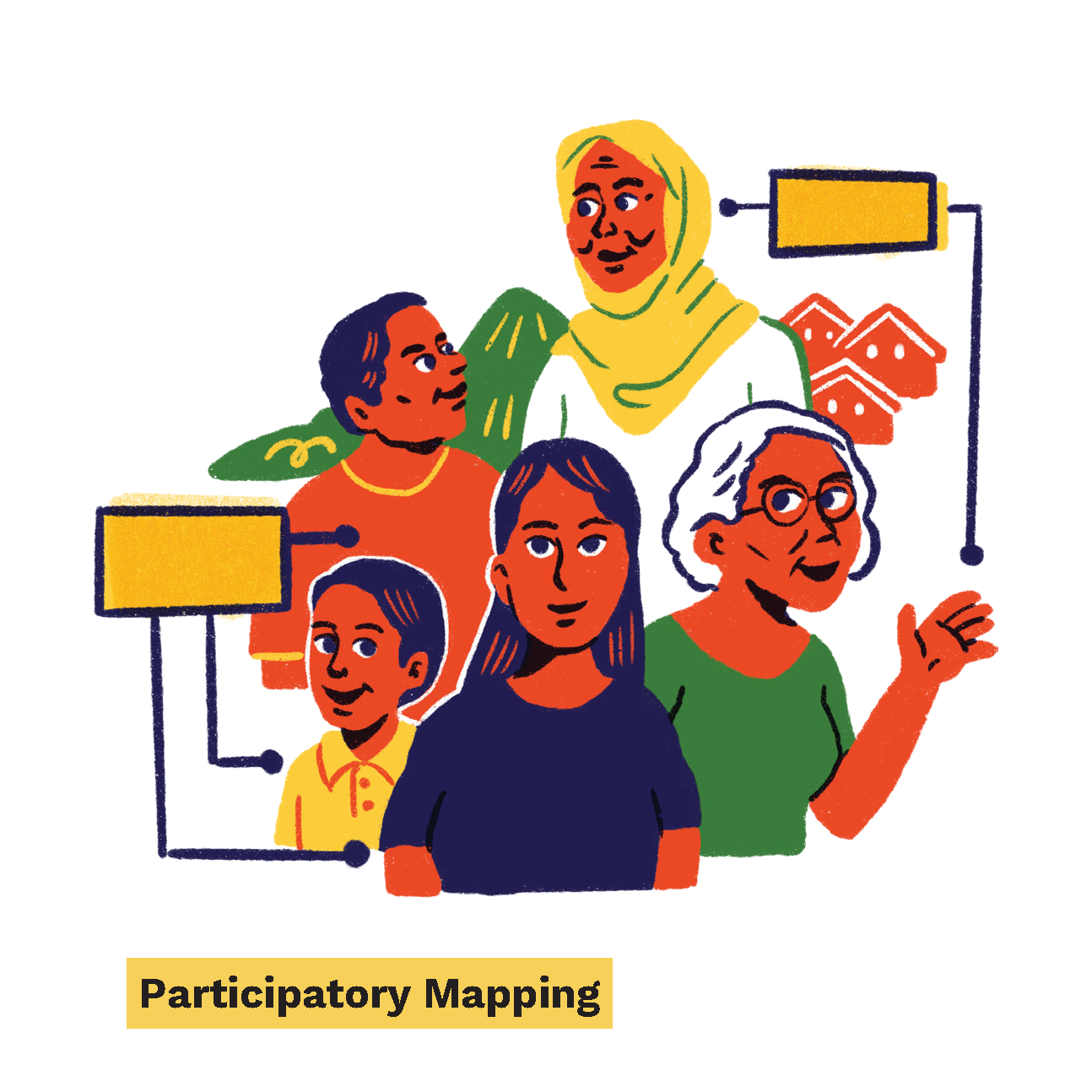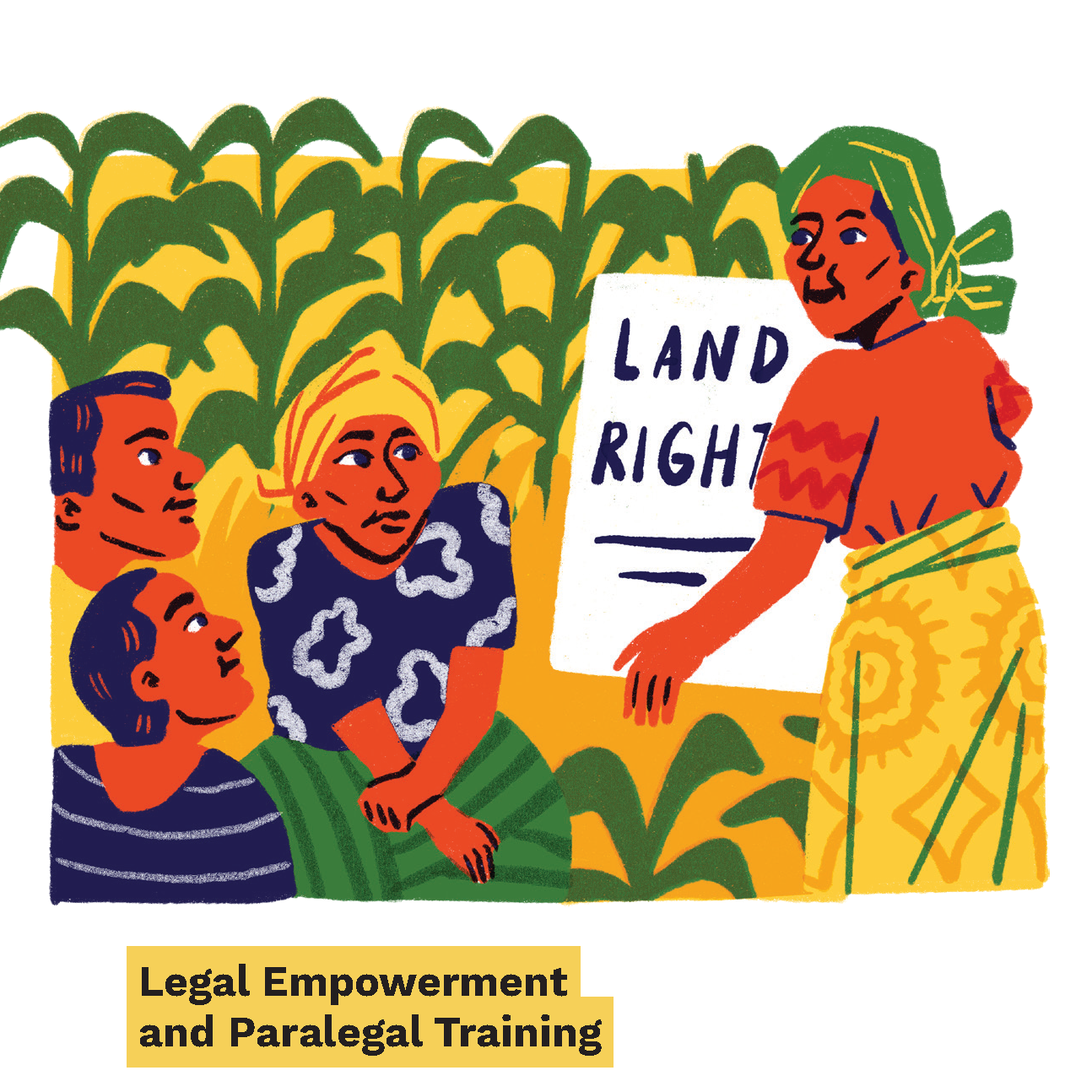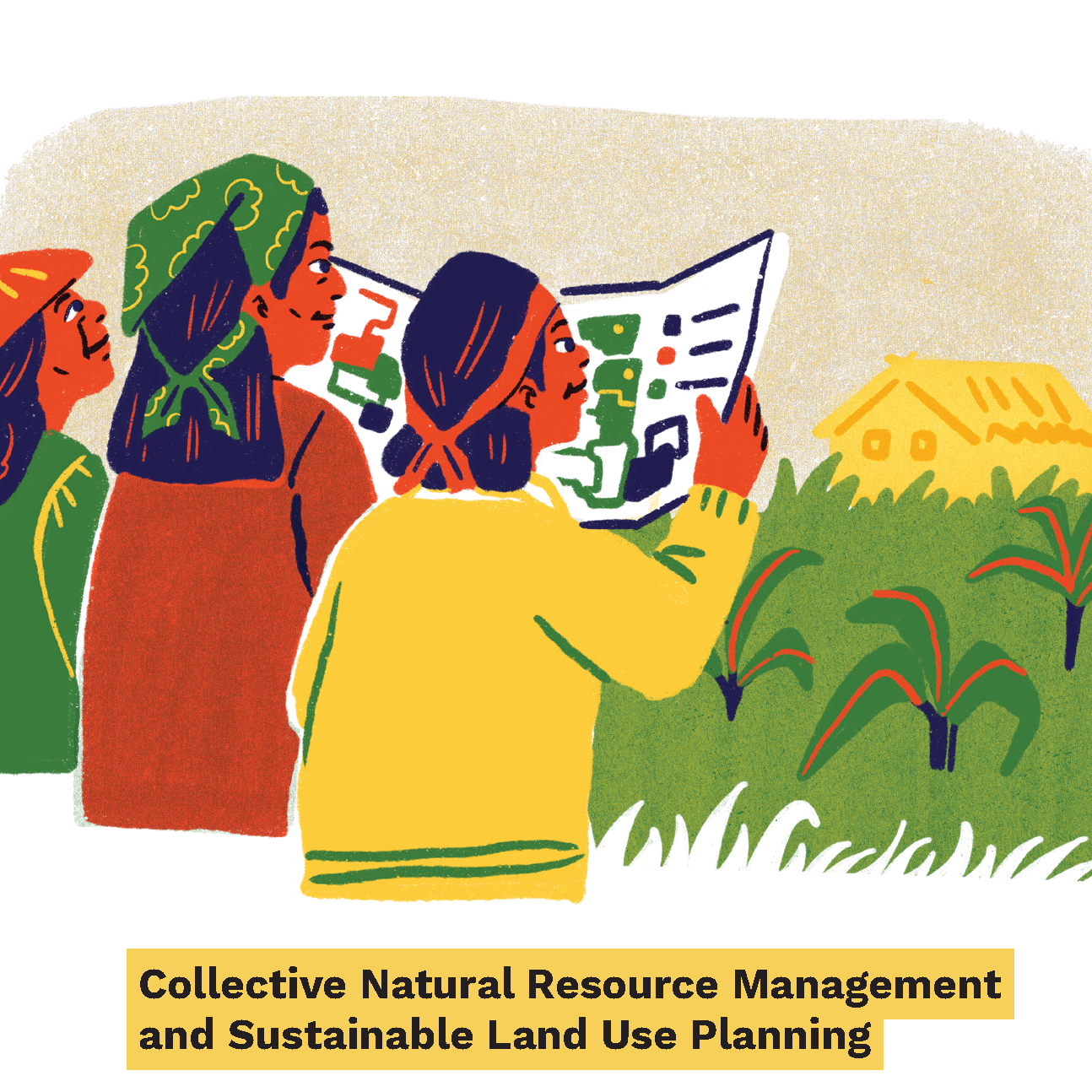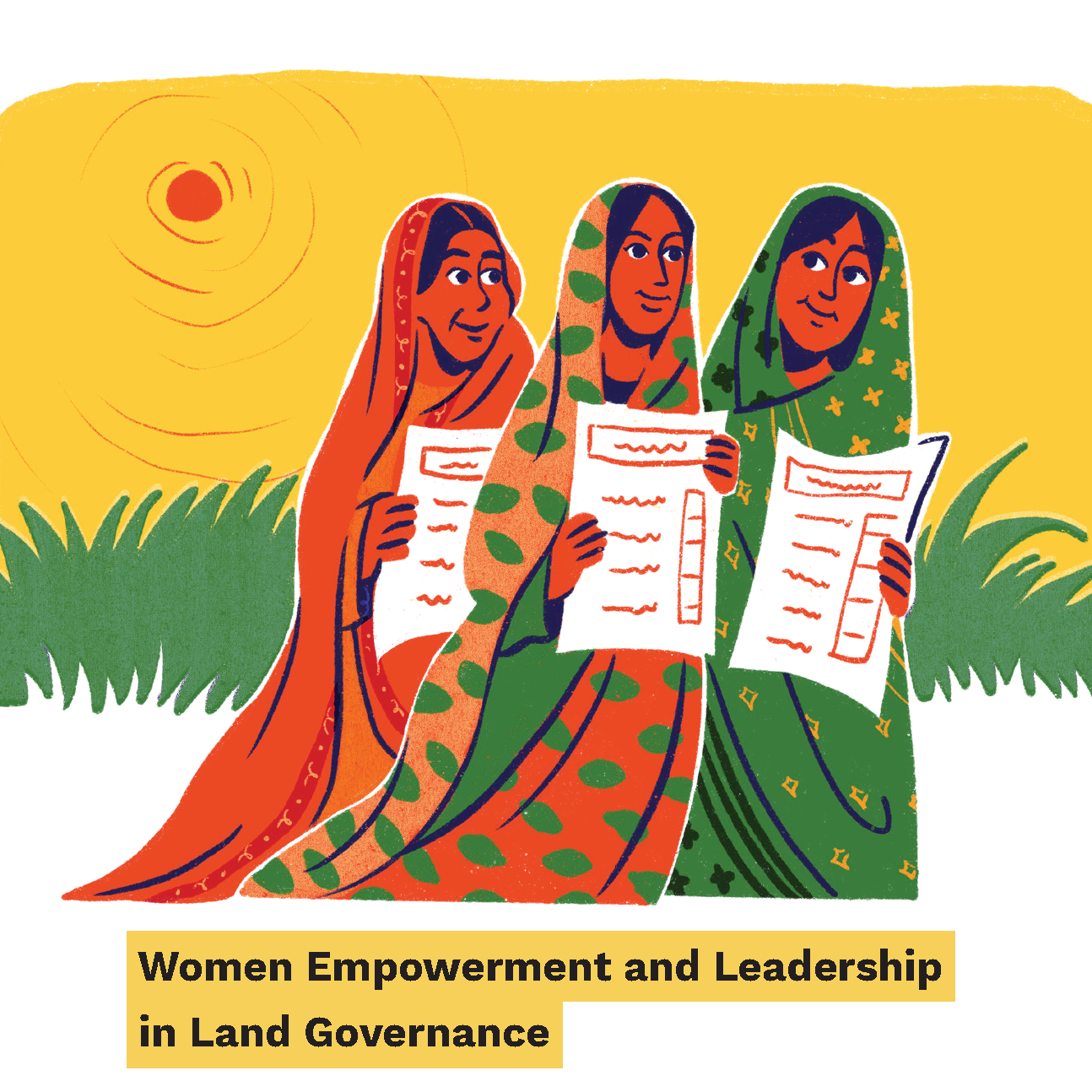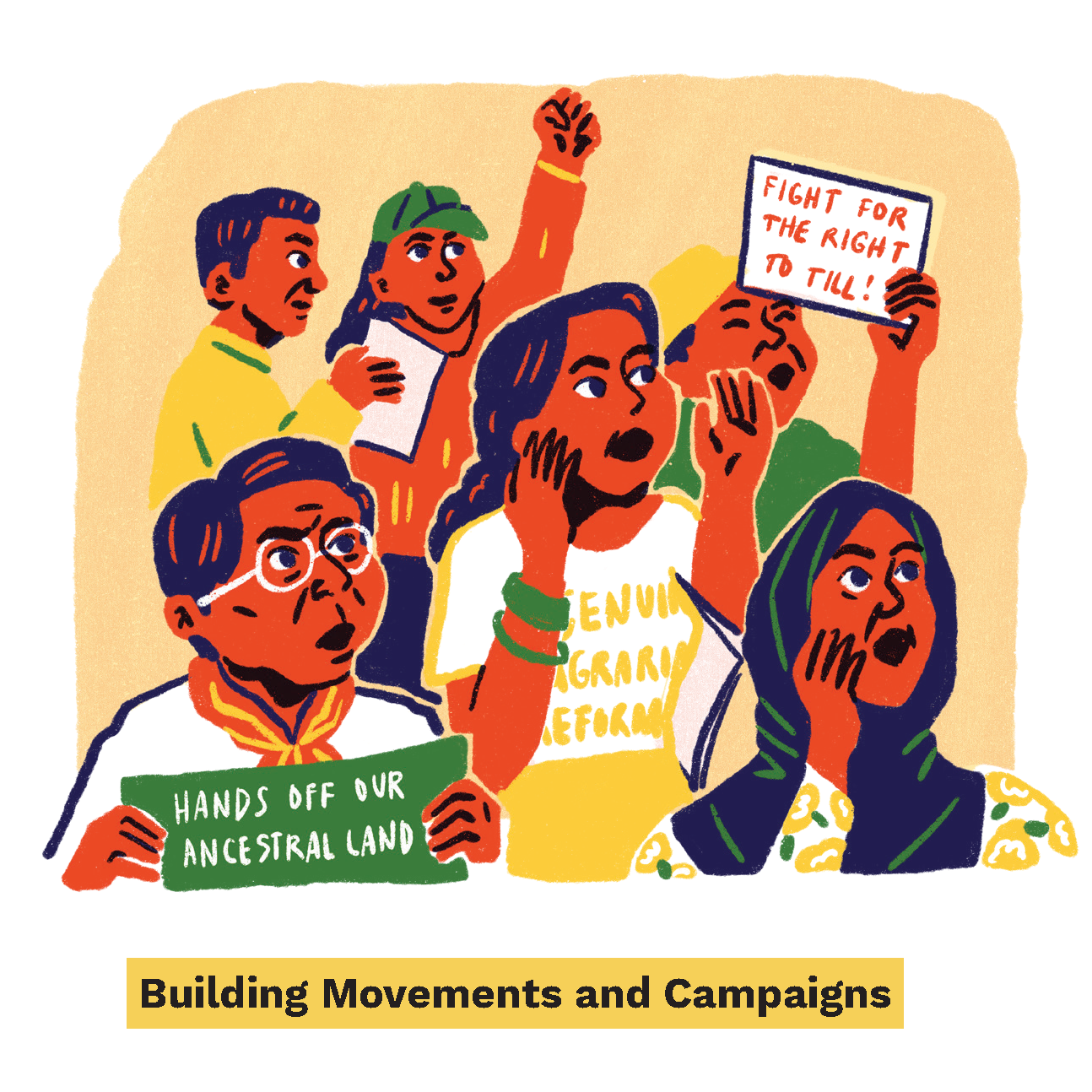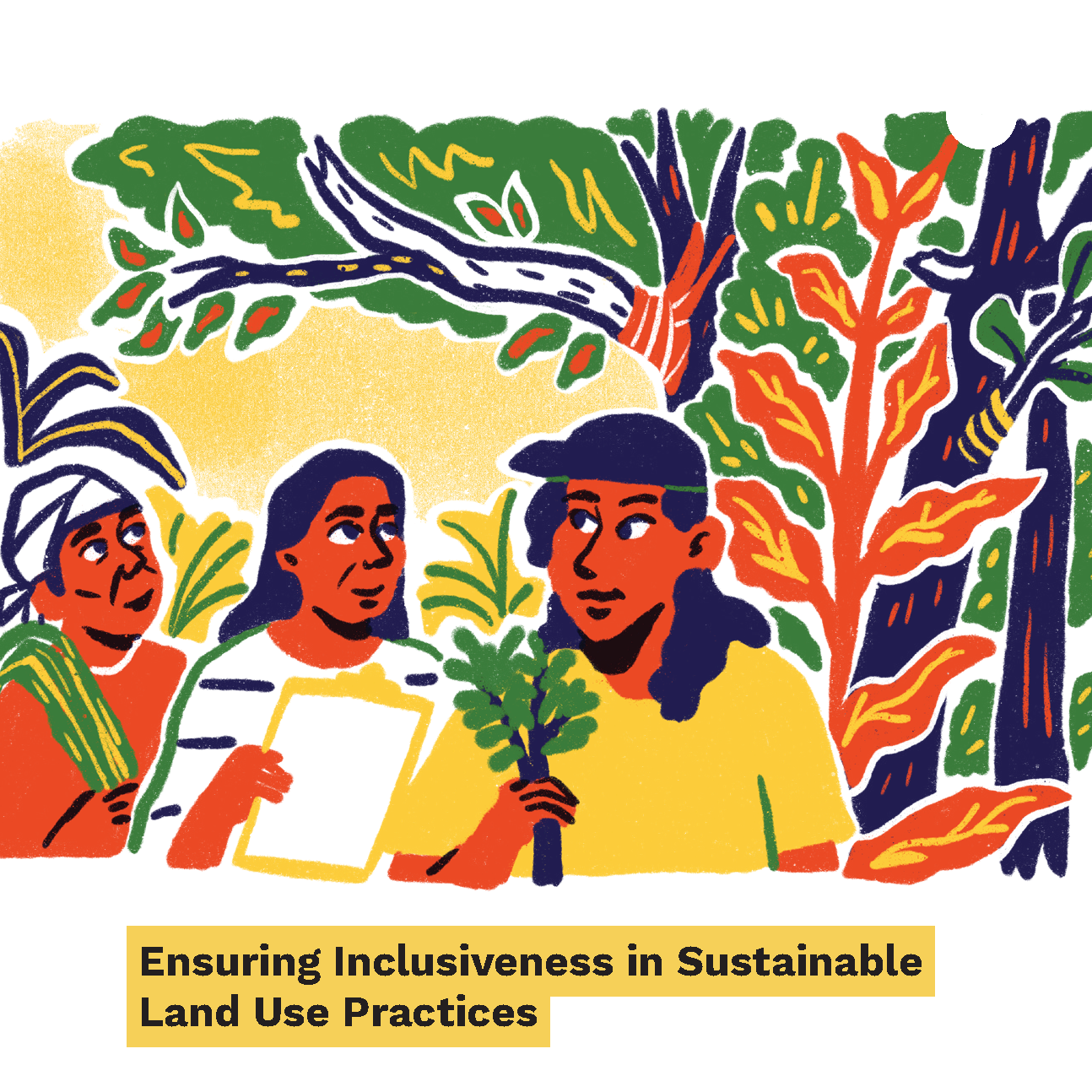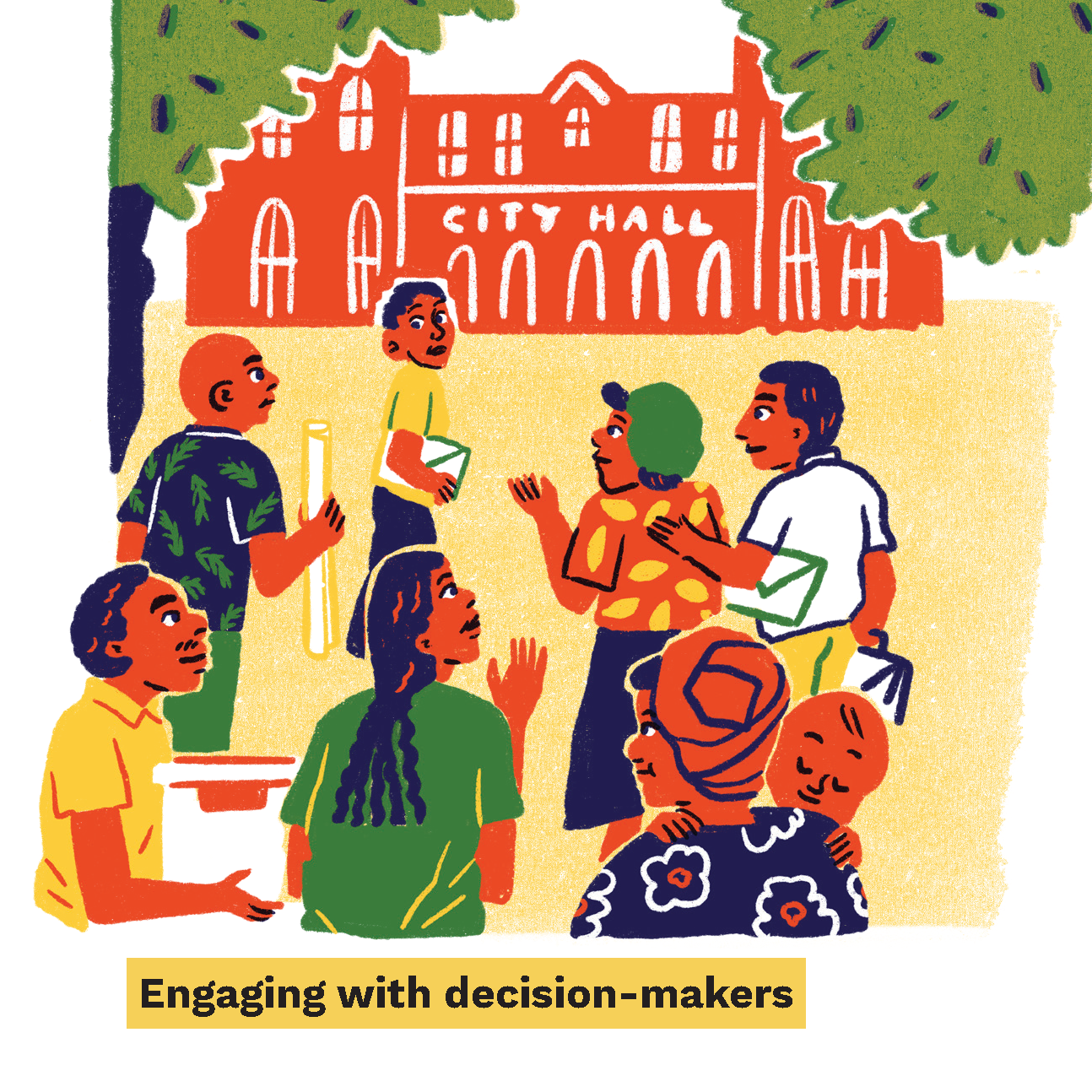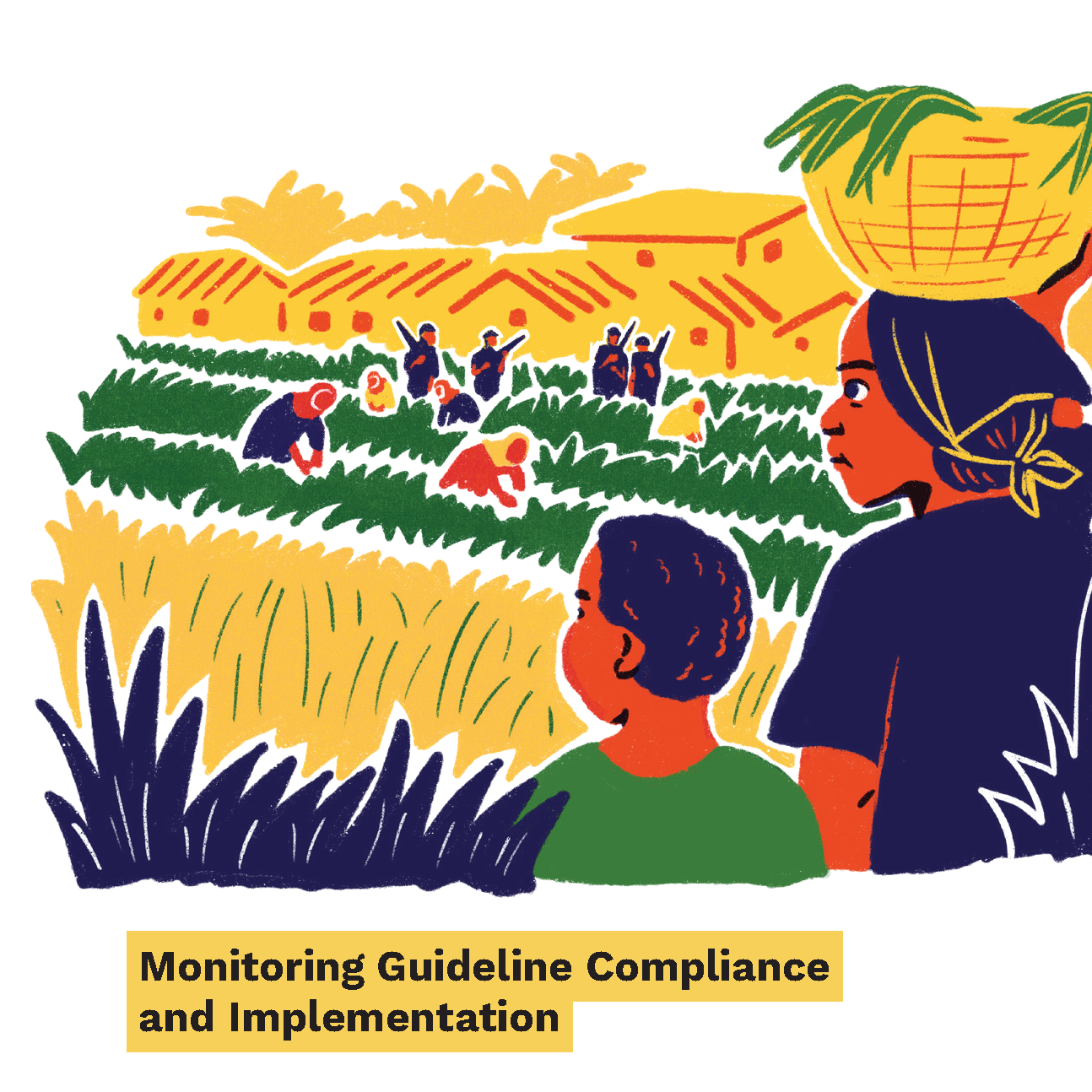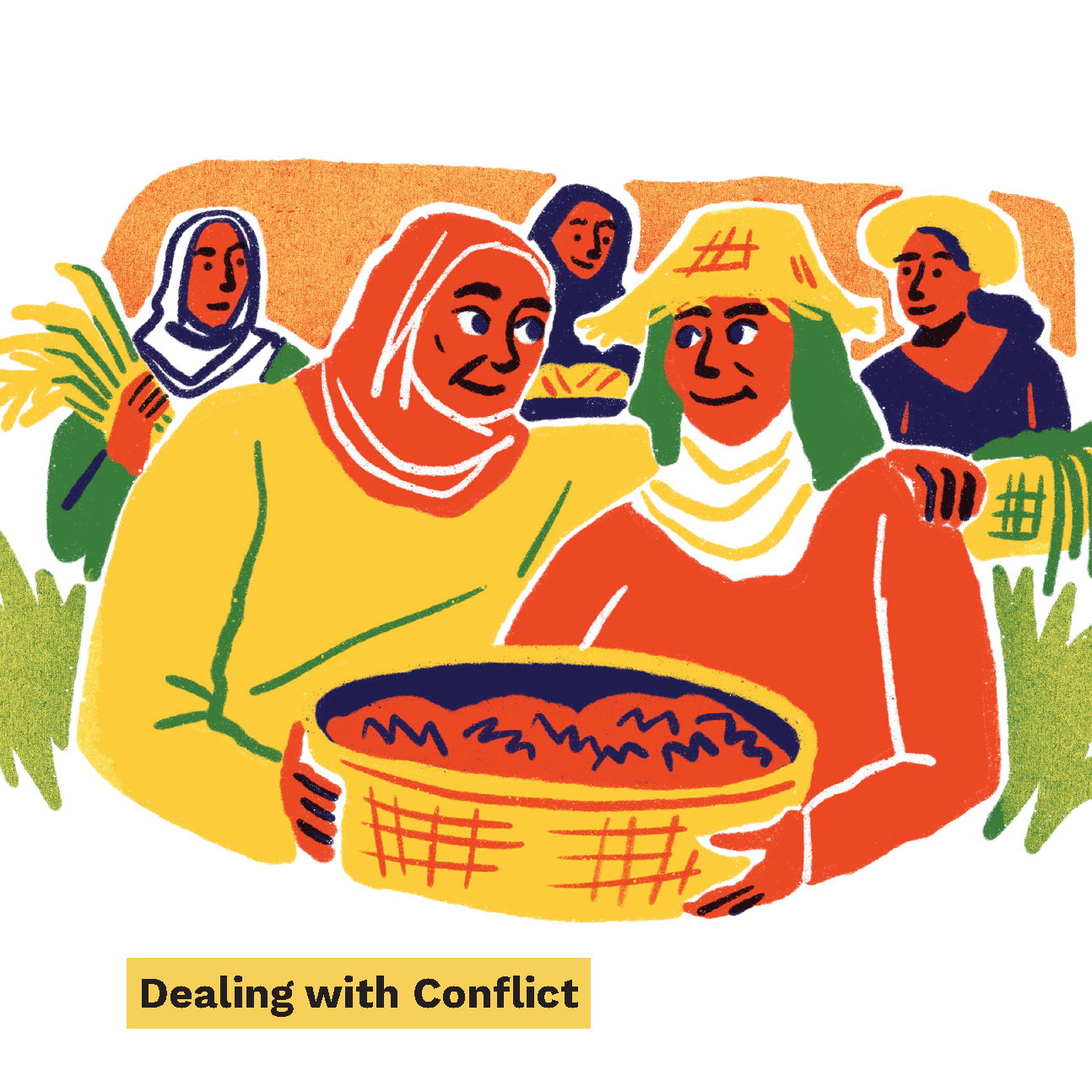Advancing inclusive land governance
Successful strategies and practices from the field
Strong land governance is crucial in managing land in a just, conflict-free and sustainable manner. This works best when local communities and rights-holders are placed at the centre of planning and decision-making, are able to define their own priorities and pursue them in meaningful and self-determined ways. However, formal land governance processes and decision-making often overlook or ignore the needs and perspectives, and sometimes even existence, of local communities, Indigenous Peoples and marginalised groups.
In order to address and overcome this situation, Both ENDS works together with a diverse network of Civil Society Organisations (CSOs) on inclusive land justice and land governance agendas. Collaborating and engaging with communities and decision-makers, these organisations actively identify, implement and advocate for inclusive land governance and sustainable land-use policies and practices that suit their local context. This publication provides a collection of their experiences, practices and strategies in the form of a guidebook. The aim is to provide a source of inspiration as well as practical guidance that other organisations can draw upon to strengthen their own work towards achieving inclusive land justice.
Download:
- This publication is also available in bahasa Indonesia
- Download the whole publication or quickly access the separate practices by clicking on the images below:
Read more about this subject
-
 Transformative Practice /
Transformative Practice /Inclusive Land Governance
Both ENDS works with partners around the world to ensure that land is governed fairly and inclusively and managed sustainably with priority for the rights and interests of local communities.
-
 Dossier /
Dossier /Participatory Land Use Planning (PLUP)
Participatory Land Use Planning (PLUP) is a rights-based approach ensuring inclusive and gender-responsive land governance, especially for those whose rights to land are not fully acknowledged.
-
 Transformative Practice /
Transformative Practice /Agroecology
Agroecology is a diverse set of agricultural practices, a field of science and a social movement. It aims to transform food systems towards greater ecological sustainability, social justice, and resilience. Both ENDS and CSO-partners around the world support farmers and pastoralists practising agroecology, both on the ground and in gathering political and financial support.
-
 Blog / 21 January 2020
Blog / 21 January 2020Oil palms, water and women: gender in the watershed
Photo Blog - Like many communities in Indonesia, life in Semanga Village, West Kalimantan, revolves around a river. The 90 or so houses follow the curving bank of the Sambas River, each with a path down to a small pontoon where fishing traps and baskets are stacked and boats are tied.
-
 External link / 19 June 2020
External link / 19 June 2020Women and water in the shadow of oil palm plantations (Annual Report 2019)
In 2019, women from Semanga, Indonesia took action to improve the water quality in their community affected by palm oil. "The pollution needs to be stopped somewhere and it can start with me."
-
 News / 22 April 2013
News / 22 April 2013NEW VIDEO: 'Mapping our Future' for survival of local communities in Indonesia
Between 2010 and 2013, Both ENDS, within an alliance of Indonesian and Dutch organisations and universities, conducted a pilot project to improve the spatial planning in the district of Sanggau in West-Kalimantan, on the island of Borneo, Indonesia, to help local communities with the recognition of their land rights. We can show you a beautiful documentary about one of the villages in this district, Terusan.
-
Publication / 4 November 2022
-
 Dossier /
Dossier /Fighting for improvements in the production of palm oil
The production of palm oil is causing social and environmental problems worldwide. Both ENDS is working to make the sector fairer and more sustainable and is promoting alternatives for palm oil.
-
 Blog / 25 September 2017
Blog / 25 September 2017Bringing good practice to the UNCCD conference
Access to, ownership and control over land is inherently part of a successful implementation of land degradation neutrality (LDN) and sustainable land management. Sustainability often means investing for the long term, and insecurity withholds land users to do so. In particular women's land use rights are fundamental as they are the ones working on the land and thus putting LDN into practice.
-
 Video / 18 November 2013
Video / 18 November 2013Mapping Our Future
Between 2010 and 2013, Both ENDS, together with Indonesian and Dutch organisations and universities, conducted a project in the district of Sanggau in West-Kalimantan, on the island of Borneo, Indonesia. The project was meant to help local communities with the recognition of their land rights and. This is a beautiful short documentary about how the people of one of these villages responded to the ever expanding palm oil plantations around them.
-
 Event / 26 April 2022, 10:00 - 11:30
Event / 26 April 2022, 10:00 - 11:30How can civil society actors ensure inclusivity in their land governance work with communities?
Both ENDS and the Land Portal Foundation invite you to the first webinar in the Whose Land? - Inclusive Pathways to Land Governance series, which aims to provide a platform for stakeholders engaged in land governance to exchange on the importance of inclusivity and meaningful participation of all relevant actors in both formal and informal land governance processes.
-
 Dossier /
Dossier /Rich Forests
Rich Forests promotes a sustainable and future-proof production system and supports, among other things, the transformation of degraded land into food forests. With this, people provide for their livelihood, increase their income and at the same time restore soil and biodiversity.
-
 News / 16 October 2020
News / 16 October 2020Restoring forests, “free supermarkets” for Cameroon’s inhabitants
To Eric Wirsiy, director of CENDEP, the importance of forests is clear: not only do they function as a "free supermarket", providing foods and other things to local communities, but they are crucial to make landscapes resilient to climate change and other impacts.
-
 External link / 24 June 2023
External link / 24 June 2023Growing a global network of Analog Forestry promoters
The International Analog Forestry Network (IAFN), a long-term partner of Both ENDS, is inspiring and supporting women's leadership in their communities to restore local ecosystems using natural forests as a model. IAFN successfully built a network of local Analog Forestry Promoters during the pandemic years and consolidated the progress made over the previous two years in 2022.
-
Publication / 11 July 2019
-
 Event / 2 March 2023, 14:00 - 15:30
Event / 2 March 2023, 14:00 - 15:30Inclusive finance for land governance: A conversation with donors
Both ENDS and the Land Portal Foundation invite you to the fourth webinar in the Whose Land? Inclusive Pathways to Land Governance series. This fourth Whose Land? webinar will focus on the question: How can donors fund land governance initiatives through an inclusive process?
More information about this event is available on Landportal.org
-
 Transformative Practice /
Transformative Practice /A Negotiated Approach for Inclusive Water Governance
A Negotiated Approach envisages the meaningful and long-term participation of communities in all aspects of managing the water and other natural resources on which their lives depend. It seeks to achieve healthy ecosystems and equitable sharing of benefits among all stakeholders within a river basin. This inclusive way of working is an essential precondition for the Transformative Practices that are promoted by Both ENDS and partners.
-
 News / 28 November 2017
News / 28 November 2017Ten years after ground-breaking ruling the Saramaka are still fighting for their rights
On 28 November 2007, the Saramaka people won a ground-breaking court case against Suriname at the Inter-American Court of Human Rights (IACHR). The Court ruling included the provision that Suriname could no longer grant concessions on tribal territory without the permission of the inhabitants. Ten years later, little has come of implementing this ruling in practice.
-
 Dossier /
Dossier /The merits of community-based restoration
Globally, the area that is suffering desertification and land degradation is ever expanding. Unsustainable and often large-scale agricultural practices, including the copious use of pesticides and fertilisers, are a major driver of land degradation, aprocess that is further exacerbated by climate change, causing more erratic rainfall patterns, longer periods of drought and unpredictable growing seasons. This is very problematic not only for the hundreds of millions of people who directly depend on land and water for their livelihoods, but also for life on earth as a whole. It is clear that this process must be stopped and reversed, better sooner than later. But how to go about it?
-
 News / 16 August 2019
News / 16 August 2019Opinion: "Sustainable land use needs radical policy change"
Today, an op-ed by Nathalie van Haren and Stefan Schüller was published in the Dutch national newspaper De Volkskrant about the IPCC's latest report "Climate Change and Land". Below you find the English translation.

